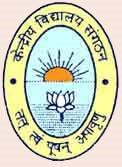WHAT IS WRONG WITH INDIAN SCRIPTWRITING!
FIRST ALL-INDIA SCREENWRITERS' CONFERENCE
Film & Television Institute of India, Pune
August 19 & 20, 2006
Introduction
It is an open secret that Indian cinema's greatest weakness lies in its refusal to acknowledge the screenplay as the bedrock of filmmaking. While one hears the occassional lip service by producers nowadays, the overwhelming majority of films do not factor in the time, creative space or the funds essential to the process of creating a script which even a lay-person today recognises as the cornerstone of film-making, not to speak of film investment. It is alleged that there are many professional scriptwriters who seem happy to avoid the rigorous grind involved in writing a competent, completed screenplay. A glance at the history of film-making in India seems to indicate that for most of the time the screenplay seems to have been a slave to the imperatives of production and the star system. All this is particularly unfortunate considering the fact that India possesses a wealth of narrative traditions that the screenwriter of today can explore in innovative ways. It is equally evident that there are a host of new and established screenwriters who are full of inspired ideas with the urge to transcend existing narrative conventions, and who possess the necessary discipline and patience.
While we take pride in being the only country in the world which has defeated Hollywood in its own territory, we need to ask ourselves why we are seriously unhappy with the quality of our own cinema.
Why do more than 85% of our films fail to connect with its audiences? Despite intense marketing and promotional strategies to seduce audiences, the success rate refuses to improve. How does one diagnose such an affliction? Are poor screenplays primarily responsible for such massive failure rates? Is our unique film language one of the main reasons for our weakness?
For the first time ever, this conference organised by FTII will bring together screen-writers from different parts of the country. They will articulate their isolated experiences, exchange ideas about their craft, share observations about the imperatives of our situation, generate insights, derive inspiration by taking a fresh look at some of the bold experimentations in India's screenwriting history and cast a glance at the road ahead.
ACT I : LOOKING BACK / RETHINKING THE PRESENT
1. The Current Scenario: In contemporary India, though different aspects of filmmaking (such as cinematography, editing, music, etc) have arguably reached high standards, scriptwriters have been somewhat left behind, unable to master the craft and understand the true pulse of our time. Why are we in this situation? Why are we not able to engage our audiences with stories that may captivate them adequately? Is it a crisis of content or are we groping in the dark, unable to find more effective strategies of telling our stories? Are screenwriters merely blaming the audience as an excuse for their own limitations?
2. Exploring India's narrative traditions: Is there any unique 'Indian' way of telling stories? Can we articulate the specific narrative form of the Indian cinema just as Hollywood is able to lay bare its structure with such precision? The relationship between storytelling in Indian cinema and the narrative tradition of our epics, folk theatre, classical Sanskrit theatre, Parsi theatre, scroll paintings, etc. The shifting dynamics of the interplay among them. Are these deep influences also responsible for anchoring Indian scriptwriting and cinema to an exclusive Indian domain or ethos from which we are now finding it so difficult to reach out to international audiences?
3. The history of Indian scriptwriting: Development of scriptwriting in the Indian film industry, from Phalke's time to the studio-era to post-war freelancing, from German scriptwriters to novelists to Sachin Bhowmik to Salim-Javed to the writer-directors of the new generation and the vicissitudes of ‘parallel’ cinema in different languages. Reasons for the dearth of scriptwriters. Relationship between literature and cinema whether in the mainstream or parallel and regional cinemas of the past.
4. Contemporary issues: While many enlightened producers have begun emphasising their new-found conviction regarding the importance of the screenplay, why does the situation refuse to change? Why are scripts and scriptwriters still treated as secondary to most other functions? Have production houses developed any real expertise in assessing screenplays? Is scriptwriting integrally factored into the filmmaking process even now? Where does scriptwriting stand in order of importance with relation to other departments, using the index of professional fees? Can a well-crafted script based on a strong story make a project worthy of finance? On the other hand, why are Indian screenwriters increasingly lifting ideas and plots from international successes, specially Hollywood films? Does it indicate a poverty of ideas or a tendency to play safe? As a matter of interest, how are these western plots and structures Indianised? What is our stand on the issue of plagiarism? Is the fear of plagiarism really more in the mind of the writer than in reality?
ACT II: THE ROAD AHEAD
5. Cinema and Literature: Relationship between literature and cinema in India. Is the bond desirable? The possibilities of synergy. Studies show that whenever cinema's relationship with literature has been deep, it has led to rich productivity in cinema. When and why did this link get weakened? Why are there such few adaptations in Indian cinema despite a wealth of fiction available in different languages? Are writers hesitant or is literary fiction, with its thematic concerns and strong cultural rootedness, difficult to adapt to popular cinema? Why are writers from literature not trying their hand at screenwriting?
6. Inspiring examples: A close look at the work of Vijay Tendulkar (who managed to incorporate disturbing social and political themes into engaging narratives), Salim-Javed (the biggest success story in Indian popular scriptwriting that brought together elements that had earlier been used in scattered ways into consciously structured organic drama) and Rituparno Ghosh (who brought finesse to film narratives, using real-life incidents, historical and mythological characters, all with a contemporary relevance). Other films that have successfully explored indigeneous narrative forms such as Ketan Mehta's 'Bhavni Bhavai' or Mani Kaul's 'Duvidha'. Why do we not have more of such attempts?
7. Learning the craft: The world's largest film-producing country did not have even one institution (until recently) with a full-fledged scriptwriting department. Why? How can aspiring Indian scriptwriters have a rigorous training in the craft? Is professional training and script education an adequate answer to the betterment of scriptwriting in India? What should be taught in an ideal screenwriting programme?
8. Scripts for the global market: The influence of Hollywood on Indian film narratives. The impact of Hollywood's seductive power on Indian writers. Its effect on local creativity. Problems of breaking into the non-diaspora overseas audience. Is 'Hollywoodisation' of the Indian screenplay the key to entering global markets? Reluctance on the part of Indian writers and film-makers to explore our indigenous stories and narrative styles with an attempt at universal resonance. What makes the telling of a story 'international'? Case studies. Are younger minds better tuned to write for an international market?
ACT III: OPEN HOUSE
Raising counterpoints. Commentaries, rejoinders and observations on papers presented. Group discussions on specific topics:
Part I: Does training in scriptwriting lead to formula-isation by writing-by-rules? Is it any longer possible to write a pan-Indian script? Why have there been no scripts that gave universal hits in recent times? What really do we mean by 'entertainment' or 'popular'?
Part II: Ideas and suggestions for the future. How effective is the Filmwriters' Association for grievance redressal? Do we need a guild or a union? Is collective action a possibility? Should we have a committee for interfacing with producers' organisations for our concerns? Can't scriptwriters form a regular forum for airing and addressing professional concerns, setting standards, holding conferences/ workshops/seminars, work out strategies for upgrading work - collaboration, script-editing, etc? Issues concerning legal matters, copyright law, rights of writers.
CUT TO.
...two months later !!!READ THIS...
"MASALA BOLLYWOOD SCRIPT"
"What is wrong with Indian script writing?" - in bollywood "ishtyle"
http://www.indiafm.com/features/2006/08/24/1465/index.html















